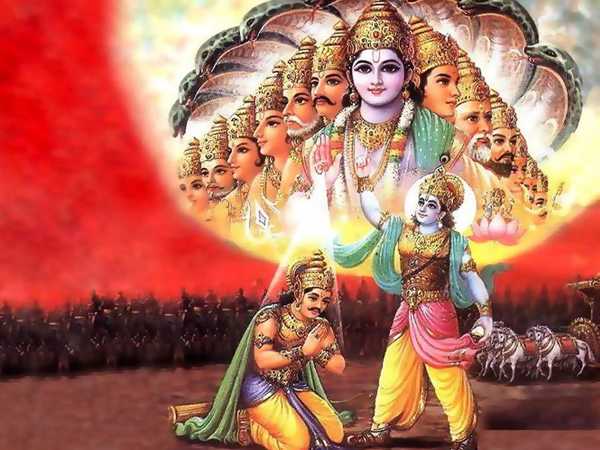Chapter 32

“The Brahmana said, ‘In this connection is cited the old narrative, Olady, of the discourse between a Brahmana and (king) Janaka. King Janaka(on a certain occasion), desirous of punishing him, said unto a Brahmanawho had become guilty of some offence, ‘Thou shalt not dwell within mydominions.’ Thus addressed, the Brahmana replied unto that best of kings,saying, ‘Tell me, O king, what the limits are of the territories subjectto thee. I desire, O lord, to dwell within the dominions of another king.Verily, I wish to obey thy behest, O lord of Earth, agreeably to thescriptures.–Thus addressed by that celebrated Brahmana, the king,hearing repeated and hot sighs, said not a word in reply. Like the planetRahu overwhelming the Sun, a cloudedness of understanding suddenlyoverwhelmed that king of immeasurable energy as he sat plunged inthought. When that cloudedness of understanding passed away and the kingbecame comforted, he spoke after a short while these words unto thatBrahmana.’
“Janaka said, ‘Although a (large) inhabited tract is subject to me withinthis ancestral kingdom of mine, yet I fail to find my dominion, searchingthrough the whole Earth. When I failed to find it on the Earth, I thensearched Mithila (for it). When I failed to find it in Mithila, I thensearched for it among my own children. When I failed to find it eventhere, a cloudedness of understanding came over me. After thatcloudedness of understanding passed away, intelligence came back to me.Then I thought that I have no dominion, or that everything is mydominion. Even this body is not mine, or the whole Earth is mine. At thesame time, O best of regenerate persons, I think that that is as muchmine as it is of others. Do thou, therefore, dwell (here) as long as thychoice leads thee, and do thou enjoy as long as thou pleasest.’
“The Brahmana said, ‘When there is a large inhabited tract in thyancestral kingdom, tell me, depending upon what understanding, has theidea of meum been got rid of by thee. What also is that understandingdepending upon which thou hast come to the conclusion that everythingconstitutes thy dominion? What, indeed, is the notion through which thouhast no dominion, or everything is thy dominion?’
“Janaka said, ‘All conditions here, in all affairs, have been understoodby me to be terminable. Hence, I could not find that which should becalled mine.[88] (Considering) whose is this, I thought of the Vedic textabout anybody’s property, I could not, therefore, find, by myunderstanding, what should be (called) mine.[89] Depending upon thisnotion, I got rid of idea of mineness. Hear now what that notion isdepending upon which I came to the conclusion that I have dominioneverywhere. I do not desire for my own self those smells that are even inmy nose. Therefore, the earth, subjugated by me, is always subject tome.[90] I do not desire for my own self those tastes that exist incontact with even my tongue. Therefore, water, subjugated by me, isalways subject to me. I do not desire for my own self the colour or lightthat appertains to my eye. Therefore, light subjugated by me, is alwayssubject to me. I do not desire for my own self those sensations of touchwhich are in contact with even my skin. Therefore, the wind, subjugatedby me, is always subject to me. I do not desire for my own self thosesounds which are in contact with even my ear. Therefore sounds,subjugated by me, are always subject to me. I do not desire for my ownself the mind that is always in my mind. Therefore the mind, subjugatedby me, is subject to me. All these acts of mine are for the sake of thedeities, the Pitris, the Bhutas, together with guests.[91]–The Brahmanathen, smiling, once more said unto Janaka,–Know that I am Dharma, whohave come here today for examining thee. Thou art verily the one personfor setting this wheel in motion, this wheel that has the quality ofGoodness for its circumference, Brahmin for its nave, and theunderstanding for its spokes, and which never turns back!'”[92]




